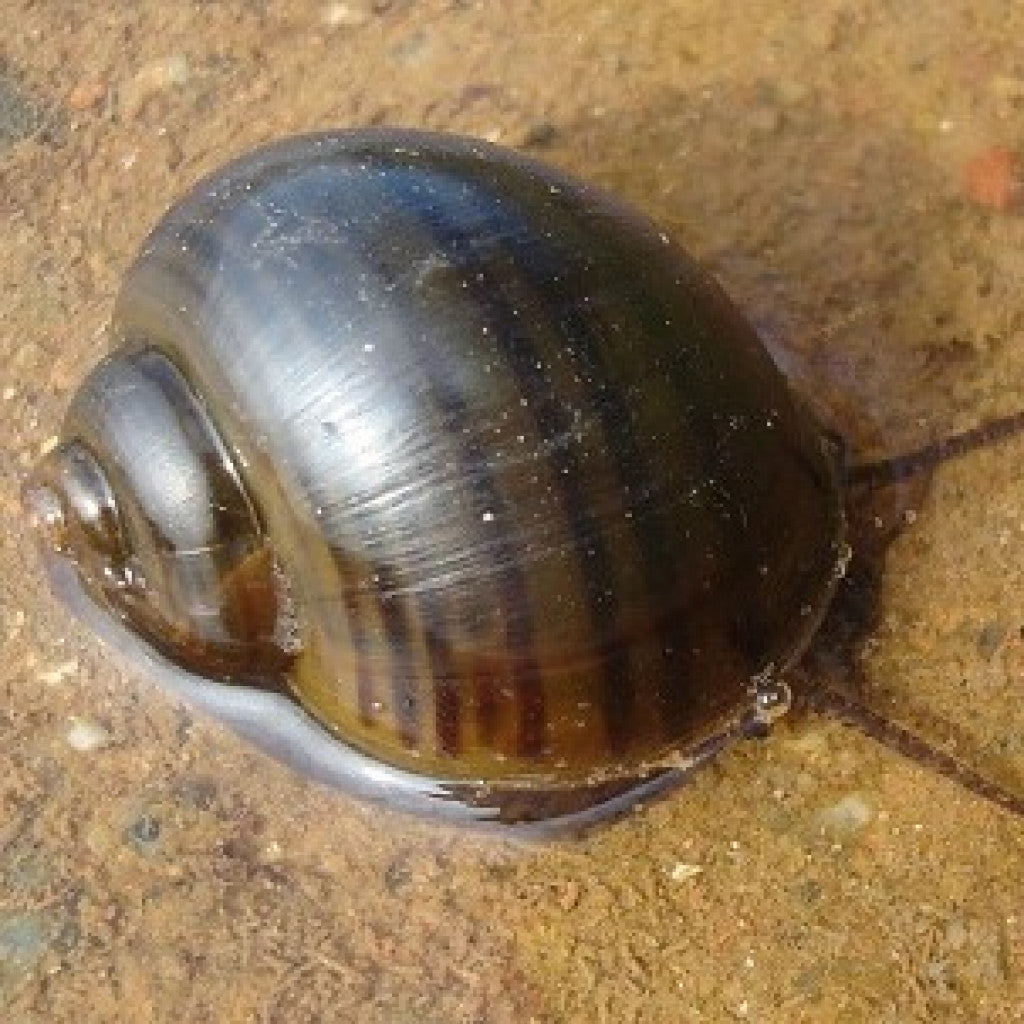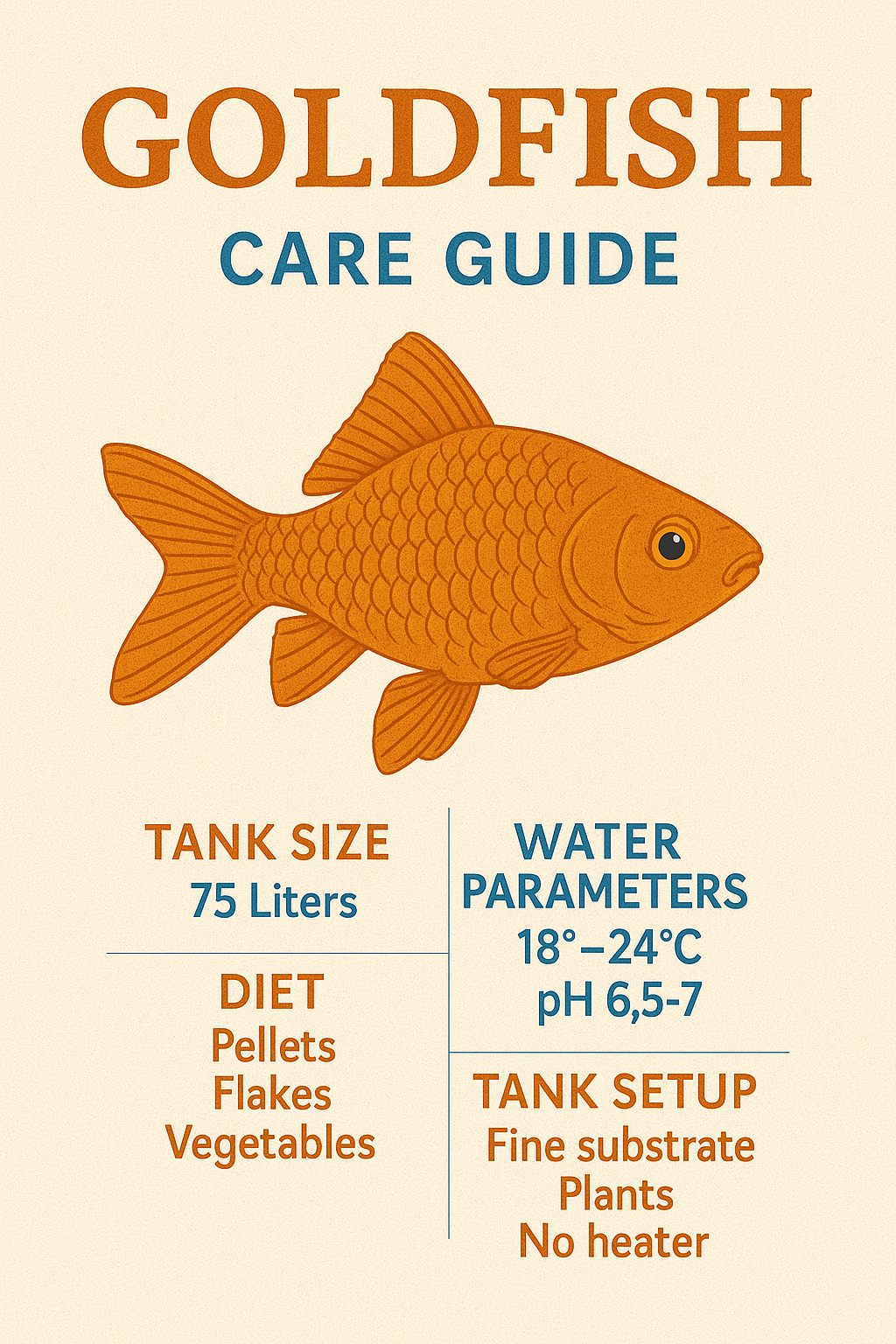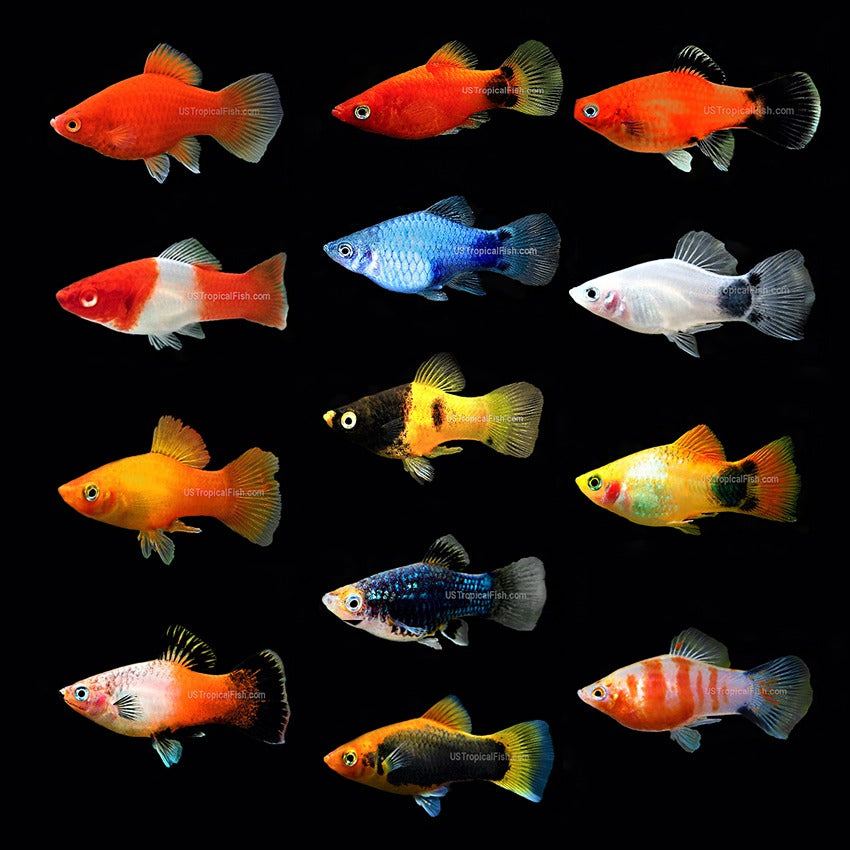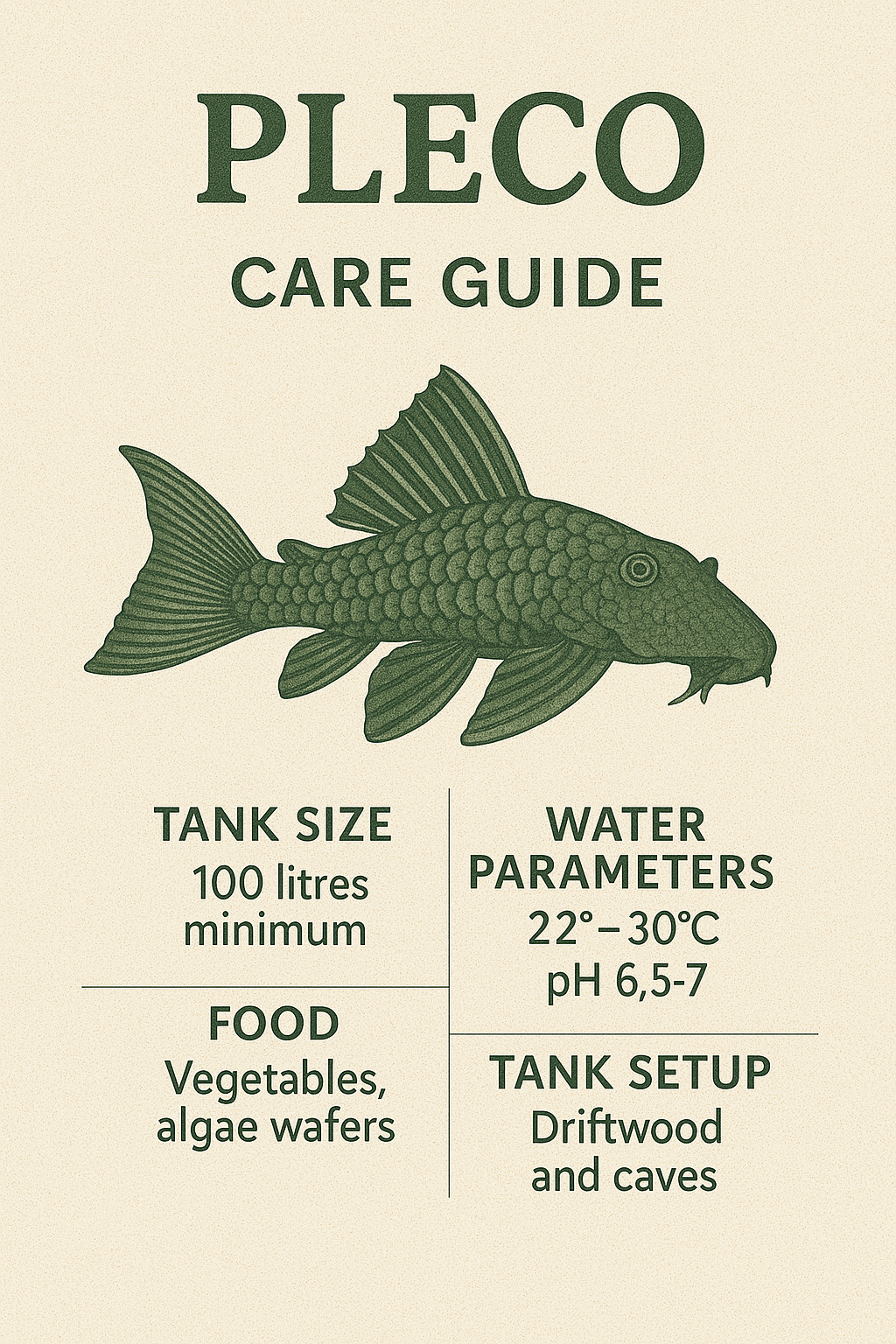🐟 Pleco Care Guide
🌍 Species Overview
Scientific Name: Hypostomus plecostomus (common pleco)
Other Names: Suckerfish, Armored Catfish
Family: Loricariidae
Lifespan: 10–15 years (some up to 20!)
Adult Size: 15–60 cm depending on species (common plecos grow very large)
🏡 Tank Requirements
-
Tank Size:
-
Small species (Bristlenose, Clown, Rubberlip) — 80–150 L
-
Common or Sailfin Pleco — 300 L minimum (preferably 400 L+)
-
-
Temperature: 23 °C – 28 °C
-
pH: 6.5 – 7.5
-
Water Hardness: 4 – 15 dGH
-
Filtration: Strong and stable — Plecos are messy eaters
-
Aeration: Moderate to high — they prefer well-oxygenated water
-
Lighting: Low to moderate — they are nocturnal and prefer shaded areas
-
Substrate: Smooth gravel or sand
-
Décor: Provide driftwood (essential for digestion and hiding), caves, rocks, and shaded areas
🍽️ Diet
Plecos are omnivores and algae grazers.
Feed a varied diet:
-
Staples: Algae wafers, sinking pellets, blanched vegetables (zucchini, cucumber, spinach, peas)
-
Occasional Treats: Bloodworms, shrimp, or other protein-rich foods
-
Wood: Driftwood is a must — many species rasp on it for fiber and digestion
🕗 Feeding Schedule:
Feed once daily at night (they are most active after lights-out). Remove uneaten food after a few hours.
💧 Tank Mates
Plecos are generally peaceful but territorial with other bottom dwellers of similar size.
✅ Good Tank Mates:
Tetras, barbs, corydoras, gouramis, angelfish, guppies, rasboras, mollies
🚫 Avoid:
Large aggressive cichlids, other large plecos, or fish that nip fins
🧽 Maintenance
-
Weekly water changes: 25 – 40 %
-
Gravel vacuuming: Plecos produce a lot of waste
-
Filter cleaning: Rinse sponges in old tank water every 2–3 weeks
-
Glass cleaning: Even though they eat algae, don’t rely on them to keep the tank spotless
🧬 Breeding
-
Most Pleco species don’t breed easily in home aquariums due to space and environmental needs.
-
Bristlenose Plecos are an exception — they breed in caves and care for their eggs.
-
Males guard the eggs until they hatch.
-
Provide PVC or coconut shell caves for spawning.
-
⚠️ Common Problems
-
Outgrowing the Tank: Common plecos often outgrow small aquariums. Choose a suitable species before purchase.
-
Starvation: Algae alone isn’t enough; supplement with wafers and vegetables.
-
Low Oxygen: Heavy waste load can deplete oxygen — ensure strong filtration and aeration.
-
Injury from Sharp Decorations: Their bodies are armored but still scratch easily.
🩺 Quick Facts
| Feature | Details |
|---|---|
| Temperament | Peaceful |
| Activity | Mostly nocturnal |
| Diet | Omnivore |
| Difficulty | Easy – Moderate |
| Origin | South America (Amazon Basin) |
| Ideal Species for Beginners | Bristlenose, Clown, Rubberlip Pleco |





0 comments